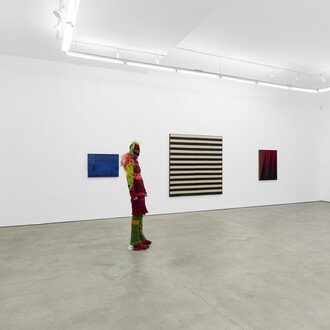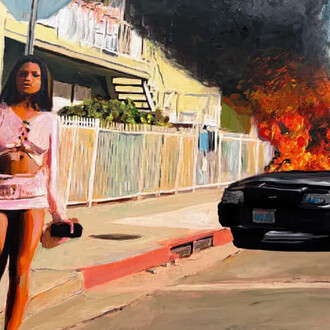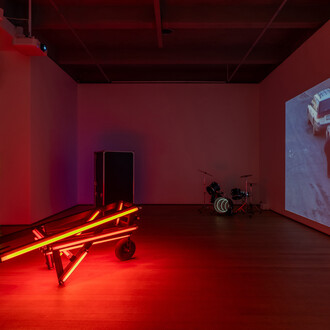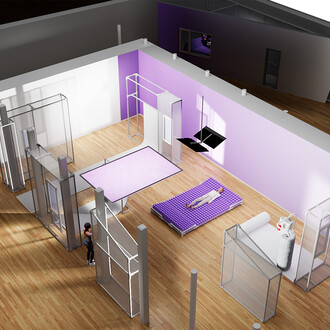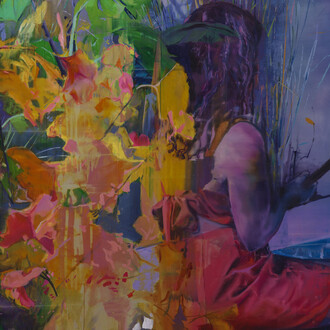This is Erwin Redl’s first exhibition at The Hole comprised of eleven new LED wall works in our Gallery 3 space. Filling the room with their subtly shifting and overlapping colored light, these works are not only an exciting expansion of the type of exhibition we have presented and the type of art experience shared with our visitors; but also, they are an exciting expansion of the gallery’s ongoing mission to explore technology’s impact on art making, here looking at a phenomenological approach to painting with light.
Erwin Redl’s studio in Long Island City is a darkened room with windows blacked out by ten foot oil prints resembling computer mother boards. Before entering, Mr. Redl assures the visitor that concerns of your day thus far will be forgotten as he begins a choreography of LED light based works that activate in different segments of the space. A circular floor sculpture appears first as a litany of LED lights illuminate miniature edifices atop like a scale model of utopian urban planning. We pass by a hanging installation of refracted green lasers and then are given a chair to slowly take in a panel of LED lights structured like a digital watch, the opener of Mr. Redl’s “reflections” series.
A programmed sequence ensues of different colors and form combinations pulsing in and out of view. The effect is mesmerizing and bodily despite the cool mechanical medium, a kind of synesthesia. A subsequent series of light panels advances the depth of “reflections” with multiple light forms and colors yielding seemingly infinite programming iterations. While the underlying technology is complex, the simplicity of composition reads as elemental, recalling the formal concerns of minimalists like Carl Andre, Sol LeWitt or more candidly Dan Flavin.
With his diverse background of studying both the Light and Space movement of the 60s and computer art and electronic music in the 90s, Erwin Redl blends the sensory and the technological across mediums to hybridize genres of art making. He studied electronic music and composition at the University of Music and Performing Art, Vienna and received an MFA in Computer Art from The School of Visual Arts in New York in 1995. He is known for his complex LED light installations that have lit building facades such as the Whitney Museum during the Biennial in 2002 in a work called MATRIX VI, along with the landscape of Madison Square Park in a work called Whiteout in 2017.





